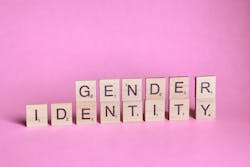One of the recommendations of the ONC Health Information Technology Advisory Committee (HITAC) for version 2 of the United States Core Data for Interoperability (USCDI) was to include Gender Identity/Sexual Orientation in patient demographics. ONC listened. The recently published version 2 of USCDI does include elements related to standardized, electronic exchange of social determinants of health data as well as sexual orientation/gender identity (SO/GI).
Most healthcare facilities have not yet developed systems to collect structured SO/GI data from all patients. Without this information, lesbian, gay, bisexual, and transgender (LGBT) patients and their specific healthcare needs cannot be identified, targeted, and addressed. And without insights into social determinants factors that may be impacting one's ability to successfully manage their health, health professionals may be hampered from delivering quality care. In January 20201, ONC released a draft of version 2 of USCDI, which defines a standardized set of health data classes and data elements for health information exchange. Version 2 introduced incremental and modest changes, including nine new data elements and two new data classes.
The USCDI establishes a baseline set of data that can be commonly exchanged across care settings for a wide range of uses. Version 1 was adopted as a standard in the ONC Cures Act Final Rule published May 1, 2020. The standard was included as a required part of certain certification criteria in the 2015 Edition Cures Update and is also referenced in the context of information blocking.
Version 2 lays the foundation for the provider community to start systemizing the capture and use of SDOH and SO/GI data in the clinical setting, ONC said While encouraged, this update does not require health professionals, such as doctors and nurses, to record this data or individuals to share such data. It does, however, set a path forward for health IT to build in support for exchanging these data as they become applicable to an individual's care.
"USCDI version 2 builds on the feedback we received from a wide variety of stakeholders," said Micky Tripathi, Ph.D., national coordinator for health information technology, in a statement. "We heard that this new version of the USCDI should reflect America's diversity and include data elements like sexual orientation, gender identity, and social determinants of health while helping to address disparities in health outcomes for minoritized, marginalized, and underrepresented individuals and communities."
"The updated US Core Data for Interoperability takes an important step in reflecting the needs of all patients who access the nation's healthcare system," said Rachel Levine, M.D., HHS assistant secretary for health, in a statement. "For accurate, compassionate, and safe care, it is important for a patient's sexual orientation and gender identity to be part of their care coordination and this new version helps prioritize next steps for the healthcare community as well as help identify patients' specific nonmedical needs— like housing, transportation, and poverty — that affect health to coordinate care and assistance to improve health outcomes."
The release makes USCDI version 2 available for consideration as part of ONC's Standards Version Advancement Process (SVAP), which will take place this fall. The SVAP allows health IT developers to update their certified health IT to support newer versions of the USCDI (among other standards) and provide those updates to their customers, including providers and hospitals, before they are required by regulation. USCDI version 2's release also will lead to additional work within standards development organizations to update implementation guides and other technical requirements to come into alignment with version 2's new data elements.


